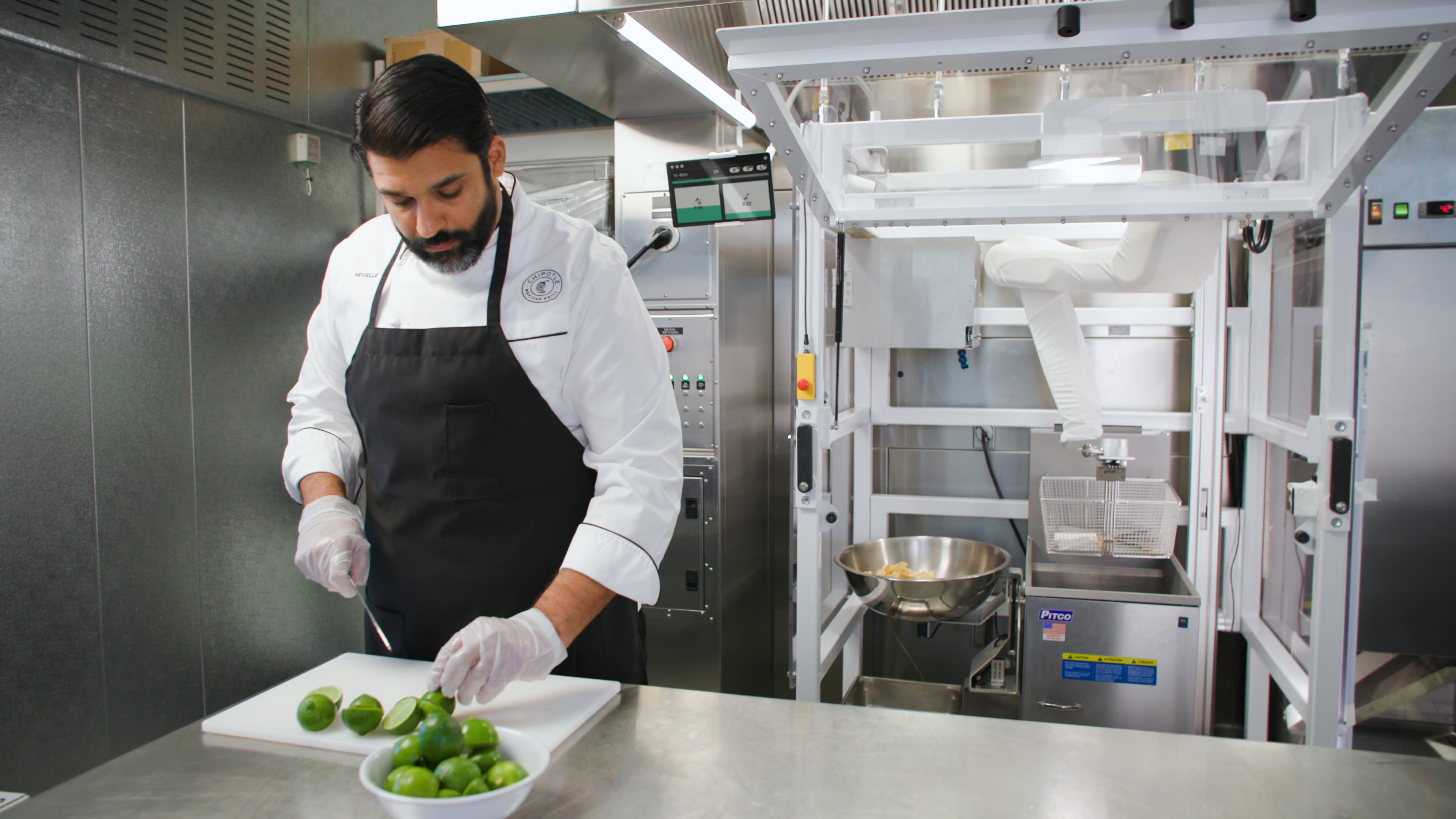
Chipotle is testing a new autonomous kitchen assistant to handle cooking up one of its core menu items —tortilla chips.
The company’s culinary and technology teams are working with Miso Robotics to customize its latest device, dubbed “Chippy,” to cook and season Chipotle’s chips with salt and fresh lime juice. Through artificial intelligence, Chippy is trained to recreate the exact recipe.
The robot is being tested at the Chipotle Cultivate Center, the company’s innovation hub in Irvine, California, and will be used in a restaurant in Southern California later this year. The company is relying on the “stage-gate process” it uses for new menu items to test and learn from workers and guests before deciding whether it should move ahead with a national rollout of Chippy.
Curt Garner, Chipotle’s chief technology officer, said the idea originated when the company started thinking about using technology and AI to be a better predictor of when restaurants might run out of chips during the day. It’s also hard for workers to leave the make line to fry more chips during peak times. Beyond that, leaning on tech could make the process more efficient and less mundane.
“We asked our team members if we could find a better mousetrap for anything in the restaurant, and what that would be, and up at the top of the list was a better way to make chips,” Garner told CNBC in an interview.
Chippy relies on some of the same tech in Miso Robotics’ Flippy 2 chicken-wing-making robot, including the same arm and a similar frame, CEO Mike Bell said. The company’s robots are also being used at White Castle for burgers and were tested at Inspire Brands’ Buffalo Wild Wings for wings.
The challenge was ensuring it got Chipotle’s chip recipe down correctly.
“This brand is crazy about freshness and their ethos is that everything’s got to be made really well,” Bell said in an interview. “We’ve had their culinary team to our facility, doing blind taste testing … getting high marks and getting past that team was a really big pressure for us.”
Miso’s robots can cost up to $3,000 a month, and it continues to pilot and test with top restaurant chains. Chipotle has not revealed how much money it has invested in the project so far, as it is in early stages.
As the labor market continues to strain competitors in the space, Chipotle has said it is looking for ways to make its jobs more consistent and efficient. But CEO Brian Niccol told analysts last quarter, “We’re very fortunate, we’ve not seen the ‘great resignation’ that you read about or hear about at our company.” Chipotle is not looking to Miso to replace workers, but instead to make their jobs more seamless, according to Garner.
“I think we remain in a really strong place as it relates to labor,” Garner said. “We didn’t approach this from a lens of trying to solve for a labor problem. We approached it from a lens of what would make it easier, more fun, more rewarding, and how do we take away some of the tasks that team members don’t like and give them more time to focus on the tasks that they do?”
Chipotle is looking at technological solutions for other aspects of its business, too, Garner said. It’s already using AI with its concierge chat bot, Pepper, on its website and app. The company also revealed it made an investment in Nuro, a SoftBank-backed autonomous delivery vehicle start-up, in March 2020.
Garner also pointed to tasks like washing dishes that could be a good fit for automation down the road, along with looking at new technologies and ways to run its digital kitchens in the future. Digital sales made up 41.6% of the company’s sales last quarter.
Chipotle shares closed up 1.47% on Tuesday, and are down 14.5% year to date.




